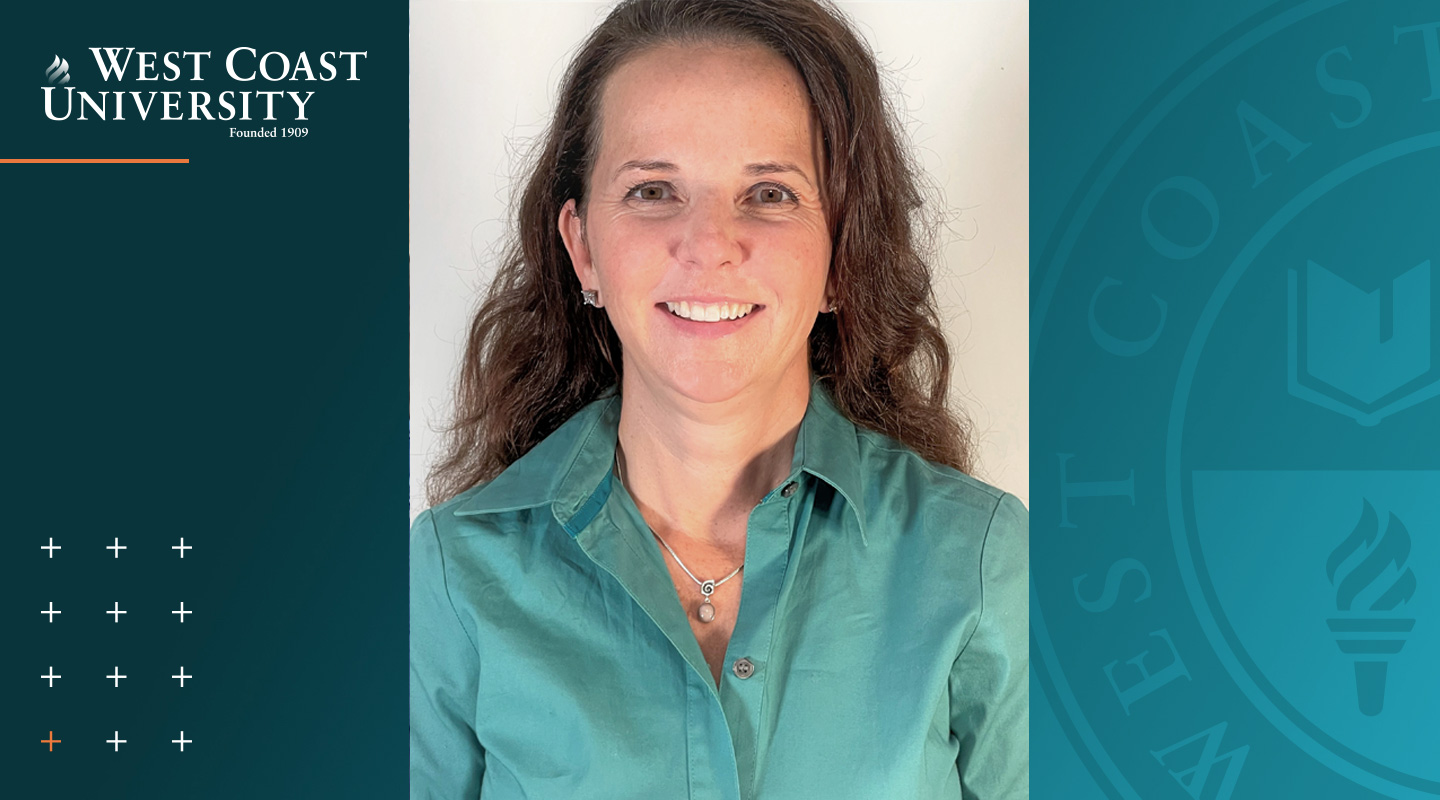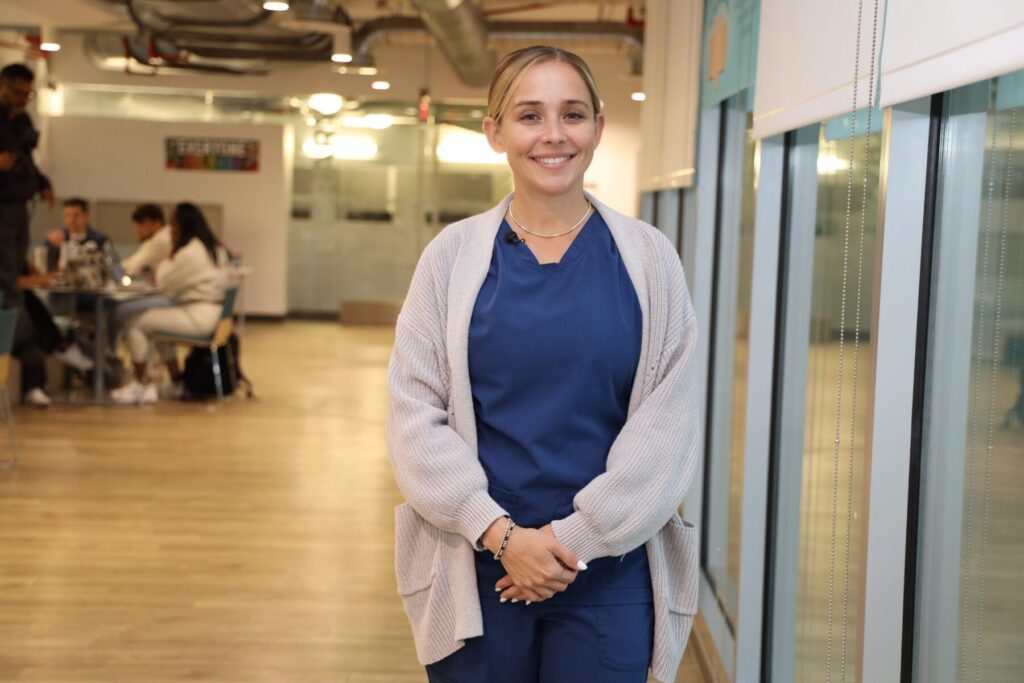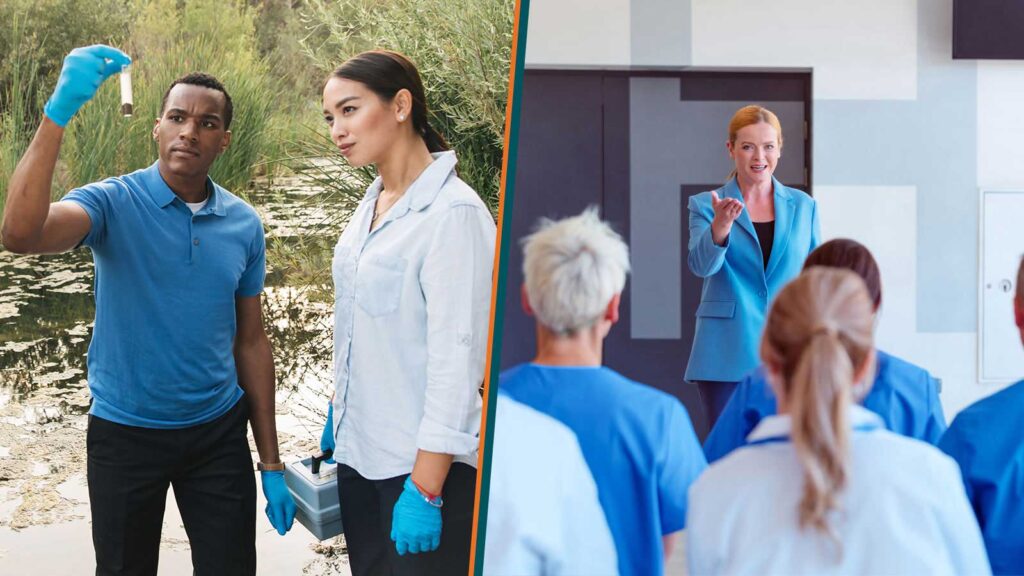One of the aspects of healthcare–and healthcare education–that is so fascinating is the diversity of career paths one can choose, from the more immediate one-to-one experience of doctors, nurses, and pharmacists to the bigger-picture experience of someone who pursues a career in public health.
And sometimes, those seemingly disparate paths converge.
Such was the case for Dr. Isabelle Tardif, a full-time assistant professor of the online Master of Public Health program at West Coast University (WCU).
“A lot of the time (when I was practicing), I got to work in public health settings, in infectious diseases, internal medicine, and pediatrics, and that work was really rewarding,” Tardif said. “So, it started early for me to be in the realm of public health.”
After working for over 10 years as an osteopathic physician, Dr. Tardif took some time away from her practice, and it was during this time that she was presented with the idea of teaching on a full-time basis. She was already teaching medical nursing students in her office. She quickly connected with the concept of passing down her experience to the next generation of the healthcare/public health workforce, and she immersed herself in online teaching.
“I really cared about my patients,” Dr. Tardif said. “I really spent a lot of time with them, to be that anchor for them as a family physician… I can really use what I learned as a physician and apply it to teaching, to my students.”
Making a Difference
For Dr. Tardif, that very authentic, genuine care and concern for her patients is the perfect example to set for her students, who by all accounts have found their way into public health because of their passion for helping, for doing their part to influence and effect change in their community or beyond.
[Pull quote:]
“In public health, you’re working with people who really need it, and so you can really see the impact of your work. It’s a field that can offer so much to a community… (Our students) really want to drive change and to help people in their community.”
-Dr. Isabelle Tardif, Assistant Professor at WCU
One such example is Sanya Bedi, who completed her MPH degree in November 2021. She worked for a county public health department during the COVID-19 pandemic, reaching out to those most in need. She is now pursuing her doctorate degree with the intent of focusing her research on public health in India, her home country.
“In India, there’s not a lot of public health (compared to) what we have in California,” Bedi said. “I want to make a difference in a community that hasn’t been touched.”
Student Diversity Brings Expanded Viewpoints, Enhanced Learning
Bedi is not alone in bringing a diverse cultural background and perspective into discussions. With students coming from many different parts of the country, and even from other parts of the world, there is a great diversity of experience among the student population in the WCU Master of Public Health program.
While diversity of thought and experience is valuable in many fields, it’s especially useful in public health, a field where remaining well-versed in best practices and staying abreast of current events at both a micro/local level and a macro/global level is absolutely crucial to formulating viable plans that lead to positive change.
“I love that I’m interacting with students from all over the country, different cultures, different backgrounds,” said Tardif, adding that some of her students come into the virtual classrooms of WCU from as far away as Africa. “For our students, being able to see what’s out there gives them a great perspective for this particular field.”
Tardif herself adds to that diversity of thought and perspective. She is a native of Quebec and moved to United States at the age of 17 as a French-speaking Canadian. She proceeded to learn English and study and practice medicine. She then began her teaching career in 2007 and joined West Coast University in 2015.
The Experience of an Online MPH Program
Another component of WCU’s Master of Public Health program that Tardif appreciates the online modality.
“I love the flexibility, and I love that you can still establish a great connection with the students despite the distance,” said Tardif.
However, greater flexibility doesn’t necessarily equate to “easier” coursework. Tardif had this to say about the online versus physical campus learning experience: “Online does require discipline. They [online students] do have to want it.”
For those interested in pursuing a career in public health, the MPH program at WCU can be completed in as little as 16 months at the Accelerated program pace. Additionally, for those who may have professional or personal commitments they are balancing, the program can be completed in 28 months at the Working Professional pace. And there are new sessions starting about every eight weeks.
Learn more about WCU’s online MPH program and apply when you’re ready.
WCU provides career guidance and assistance but cannot guarantee employment. The views and opinions expressed are those of the individuals and do not necessarily reflect the beliefs or position of the school or of any instructor or student.



